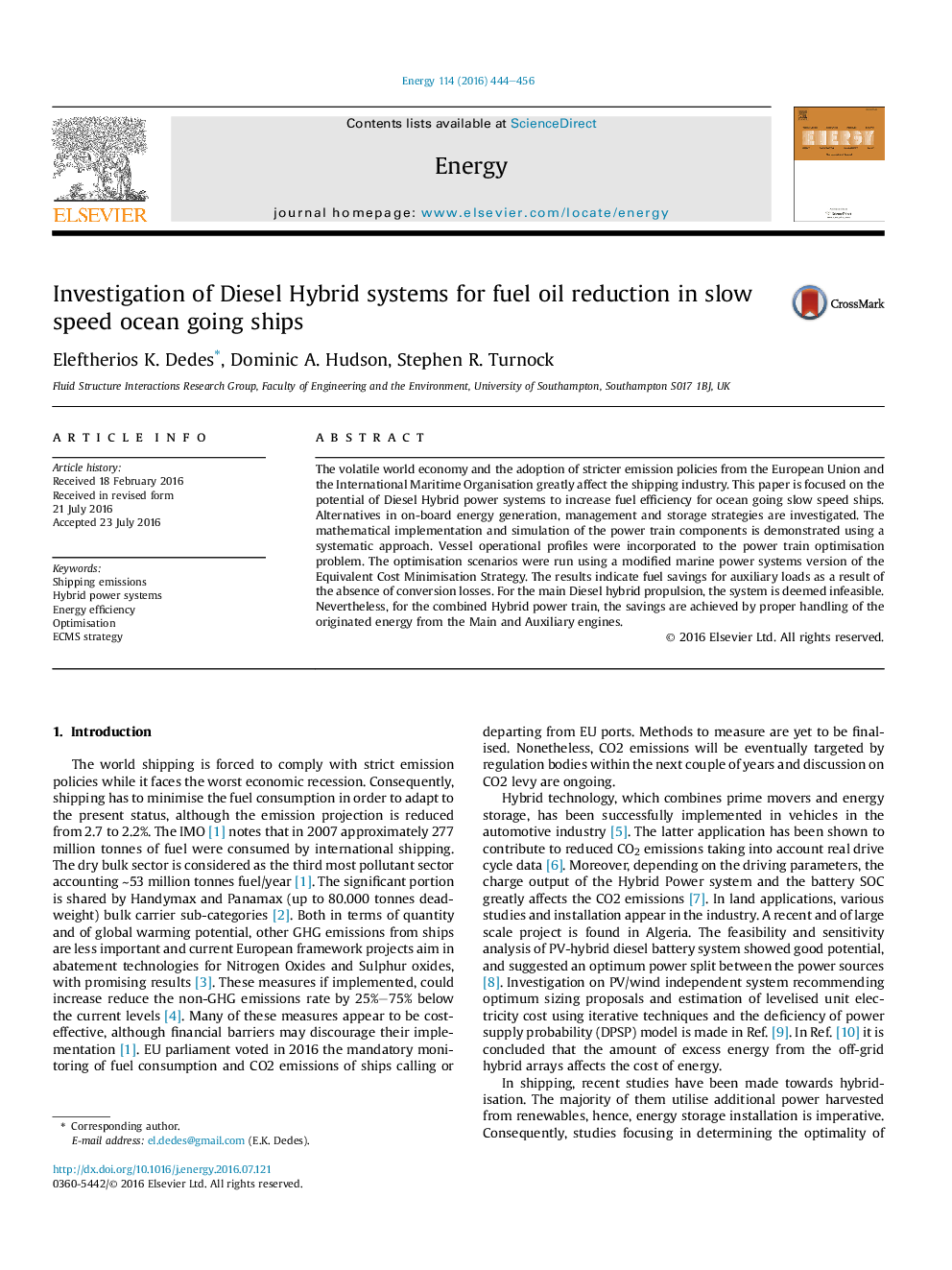| Article ID | Journal | Published Year | Pages | File Type |
|---|---|---|---|---|
| 8072858 | Energy | 2016 | 13 Pages |
Abstract
The volatile world economy and the adoption of stricter emission policies from the European Union and the International Maritime Organisation greatly affect the shipping industry. This paper is focused on the potential of Diesel Hybrid power systems to increase fuel efficiency for ocean going slow speed ships. Alternatives in on-board energy generation, management and storage strategies are investigated. The mathematical implementation and simulation of the power train components is demonstrated using a systematic approach. Vessel operational profiles were incorporated to the power train optimisation problem. The optimisation scenarios were run using a modified marine power systems version of the Equivalent Cost Minimisation Strategy. The results indicate fuel savings for auxiliary loads as a result of the absence of conversion losses. For the main Diesel hybrid propulsion, the system is deemed infeasible. Nevertheless, for the combined Hybrid power train, the savings are achieved by proper handling of the originated energy from the Main and Auxiliary engines.
Related Topics
Physical Sciences and Engineering
Energy
Energy (General)
Authors
Eleftherios K. Dedes, Dominic A. Hudson, Stephen R. Turnock,
